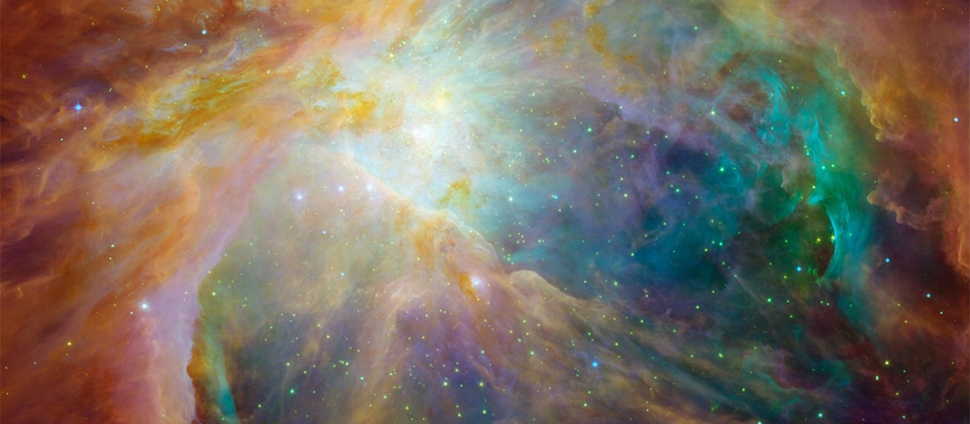Document Type
Article
Publication Date
8-1-2022
Publication Title
Astrophysical Journal Letters
Abstract
Accretion signatures from bound brown dwarf and protoplanetary companions provide evidence for ongoing planet formation, and accreting substellar objects have enabled new avenues to study the astrophysical mechanisms controlling the formation and accretion processes. Delorme 1 (AB)b, a ?1/430-45 Myr circumbinary planetary-mass companion, was recently discovered to exhibit strong Hα emission. This suggests ongoing accretion from a circumplanetary disk, somewhat surprising given canonical gas disk dispersal timescales of 5-10 Myr. Here, we present the first NIR detection of accretion from the companion in Paβ, Pa?3, and Br?3 emission lines from SOAR/TripleSpec 4.1, confirming and further informing its accreting nature. The companion shows strong line emission, with L line ≈ 1-6 × 10-8 L ? across lines and epochs, while the binary host system shows no NIR hydrogen line emission (L line < 0.32-11 × 10-7 L ?). Observed NIR hydrogen line ratios are more consistent with a planetary accretion shock than with local line excitation models commonly used to interpret stellar magnetospheric accretion. Using planetary accretion shock models, we derive mass accretion rate estimates of Ṁpla?1/43 -4 × 10-8 M J yr-1, somewhat higher than expected under the standard star formation paradigm. Delorme 1 (AB)b's high accretion rate is perhaps more consistent with formation via disk fragmentation. Delorme 1 (AB)b is the first protoplanet candidate with clear (signal-to-noise ratio ?1/45) NIR hydrogen line emission.
Volume
935
Issue
1
DOI
10.3847/2041-8213/ac85ef
ISSN
20418205
Creative Commons License

This work is licensed under a Creative Commons Attribution 4.0 International License.
Rights
© 2022. The Author(s)
Version
Version of Record
Recommended Citation
Betti, S. K.; Follette, K. B.; Ward-Duong, K.; Aoyama, Y.; Marleau, G. D.; Bary, J.; Robinson, C.; Janson, M.; Balmer, W.; Chauvin, G.; and Palma-Bifani, P., "Near-Infrared Accretion Signatures from the Circumbinary Planetary-Mass Companion Delorme 1 (ab)b" (2022). Astronomy: Faculty Publications, Smith College, Northampton, MA.
https://scholarworks.smith.edu/ast_facpubs/94


